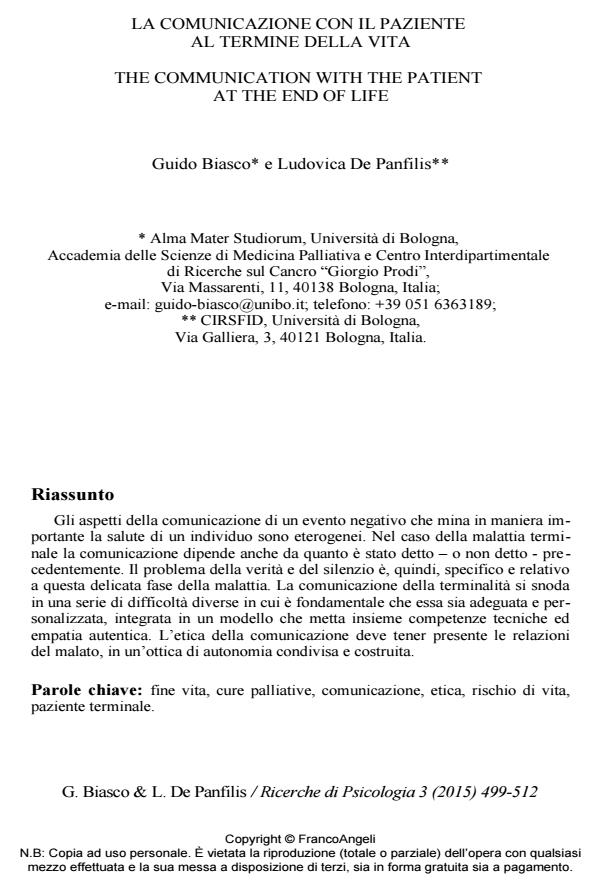La comunicazione con il paziente al termine della vita
Titolo Rivista RICERCHE DI PSICOLOGIA
Autori/Curatori Guido Biasco, Ludovica De Panfilis
Anno di pubblicazione 2015 Fascicolo 2015/3
Lingua Italiano Numero pagine 14 P. 499-512 Dimensione file 166 KB
DOI 10.3280/RIP2015-003004
Il DOI è il codice a barre della proprietà intellettuale: per saperne di più
clicca qui
Qui sotto puoi vedere in anteprima la prima pagina di questo articolo.
Se questo articolo ti interessa, lo puoi acquistare (e scaricare in formato pdf) seguendo le facili indicazioni per acquistare il download credit. Acquista Download Credits per scaricare questo Articolo in formato PDF

FrancoAngeli è membro della Publishers International Linking Association, Inc (PILA)associazione indipendente e non profit per facilitare (attraverso i servizi tecnologici implementati da CrossRef.org) l’accesso degli studiosi ai contenuti digitali nelle pubblicazioni professionali e scientifiche
Gli aspetti della comunicazione di un evento negativo che mina in maniera importante la salute di un individuo sono eterogenei. Nel caso della malattia terminale la comunicazione dipende anche da quanto è stato detto - o non detto - precedentemente. Il problema della verità e del silenzio è, quindi, specifico e relativo a questa delicata fase della malattia. La comunicazione della terminalità si snoda in una serie di difficoltà diverse in cui è fondamentale che essa sia adeguata e personalizzata, integrata in un modello che metta insieme competenze tecniche ed empatia autentica. L’etica della comunicazione deve tener presente le relazioni del malato, in un’ottica di autonomia condivisa e costruita.
Parole chiave:Fine vita, cure palliative, comunicazione, etica, rischio di vita, paziente terminale.
Guido Biasco, Ludovica De Panfilis, La comunicazione con il paziente al termine della vita in "RICERCHE DI PSICOLOGIA " 3/2015, pp 499-512, DOI: 10.3280/RIP2015-003004